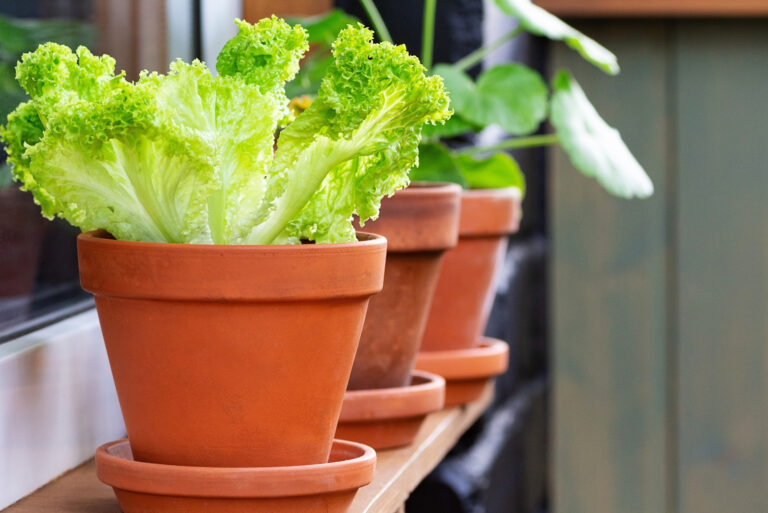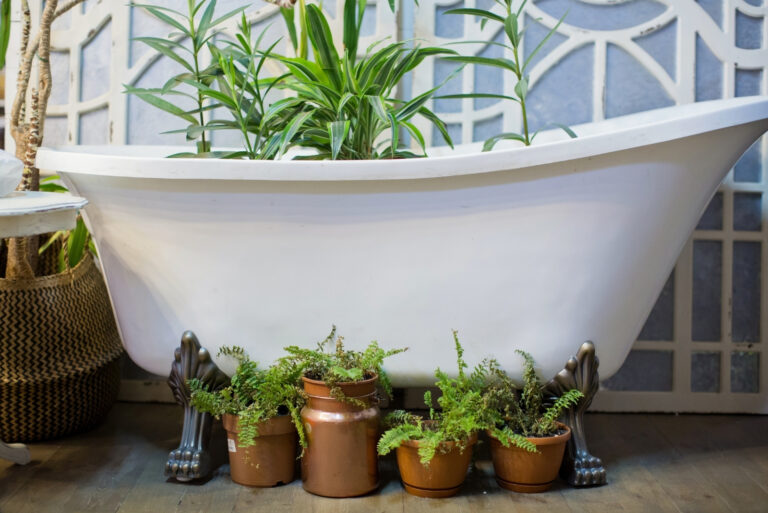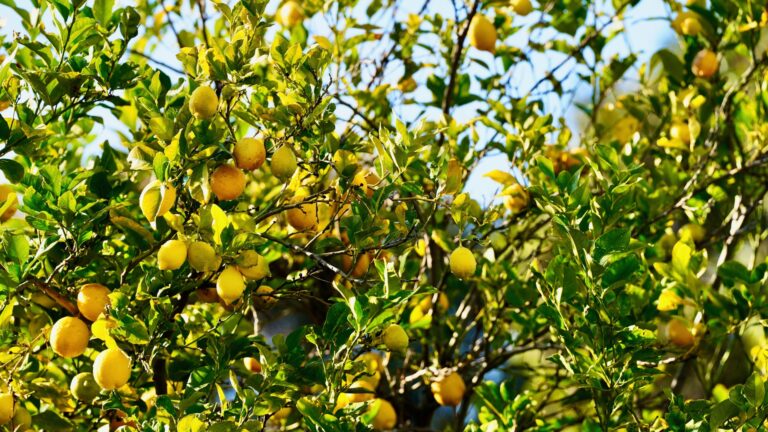Fall Gardening Checklist For Michigan Homeowners
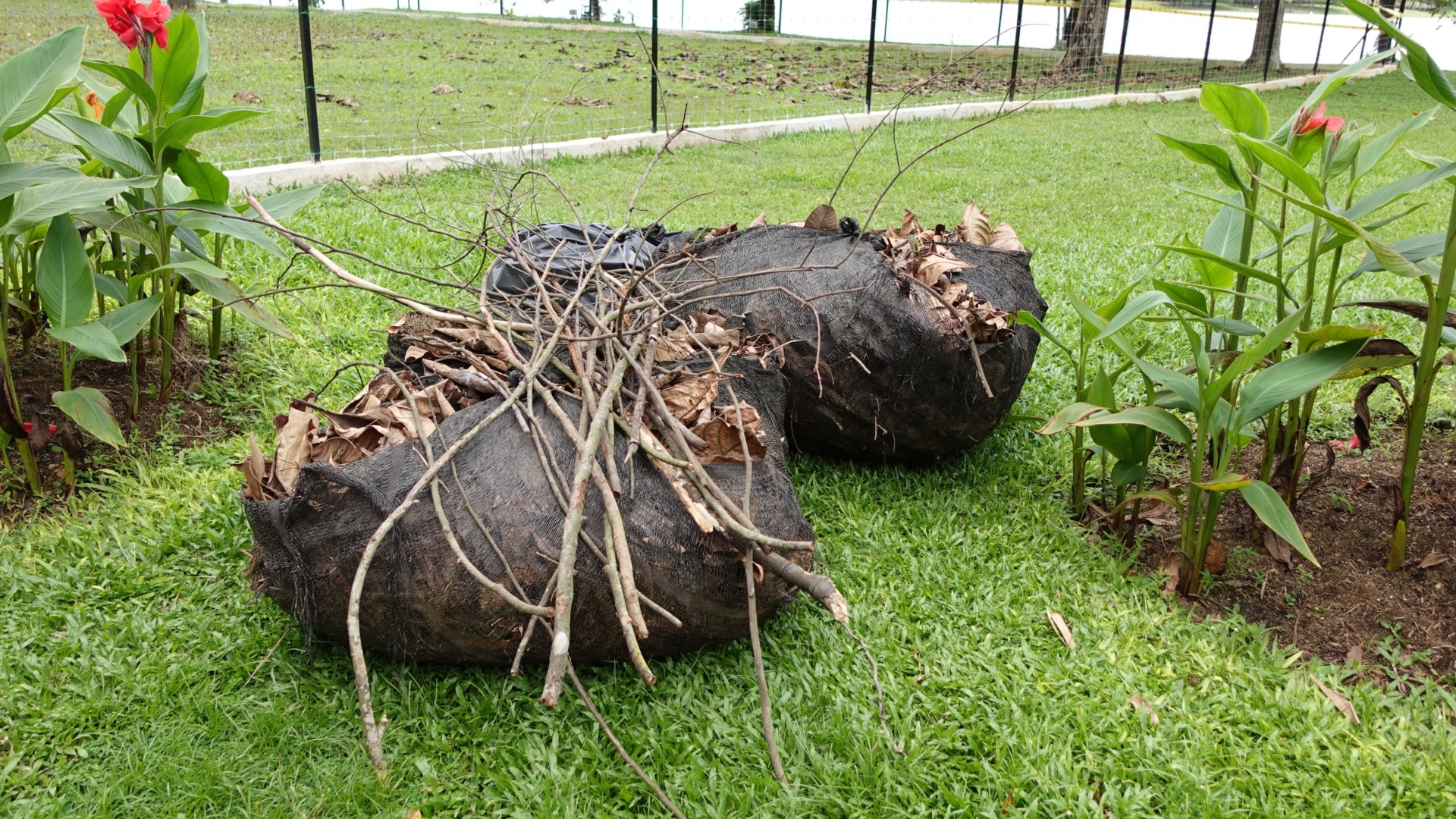
Fall in Michigan brings stunning colors and cooler temperatures, but it also signals an important time for garden preparation. Getting your yard ready now means healthier plants next spring and less work when warm weather returns.
Your Michigan garden needs special attention before winter’s harsh conditions arrive, so grab your gloves and let’s prepare your outdoor space for the cold months ahead.
1. Clean Up Fallen Leaves
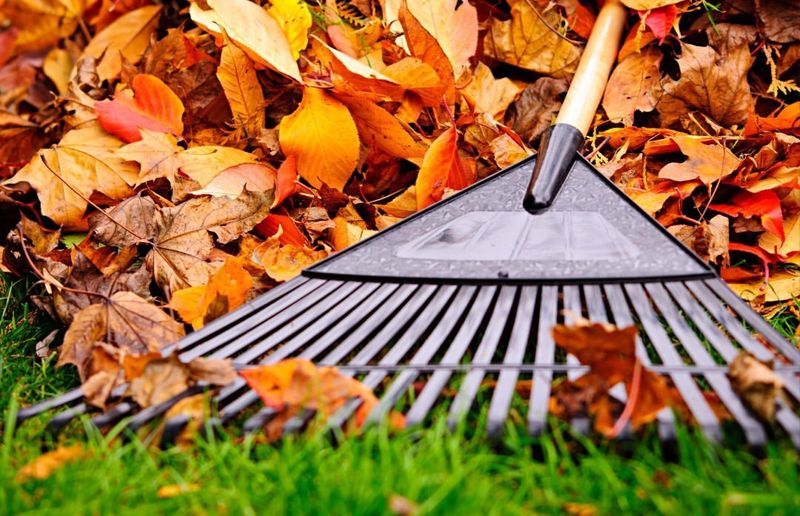
Those beautiful autumn leaves can actually harm your lawn if left all winter. They create a wet, moldy barrier that suffocates grass and harbors diseases.
Rake regularly as leaves fall, adding them to your compost pile or creating leaf mulch for garden beds. Some leaves, like oak, break down slowly and make excellent winter protection for sensitive perennials.
2. Plant Spring-Blooming Bulbs
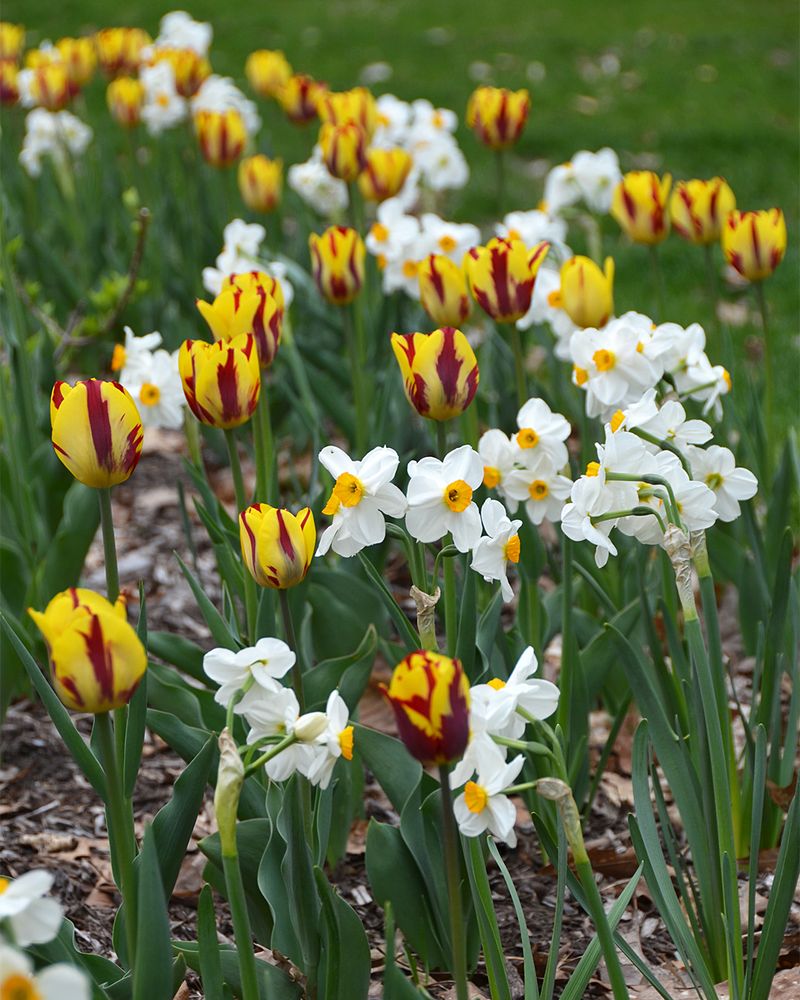
Michigan’s cold winters provide the perfect chilling period that spring bulbs need to bloom beautifully. October is prime time to get these future flowers into the ground.
Dig holes about three times deeper than the bulb’s height, add some bulb fertilizer, and place pointy-end up. Tulips, daffodils, and crocuses thrive in Michigan and will reward your fall efforts with gorgeous spring color.
3. Divide Overcrowded Perennials
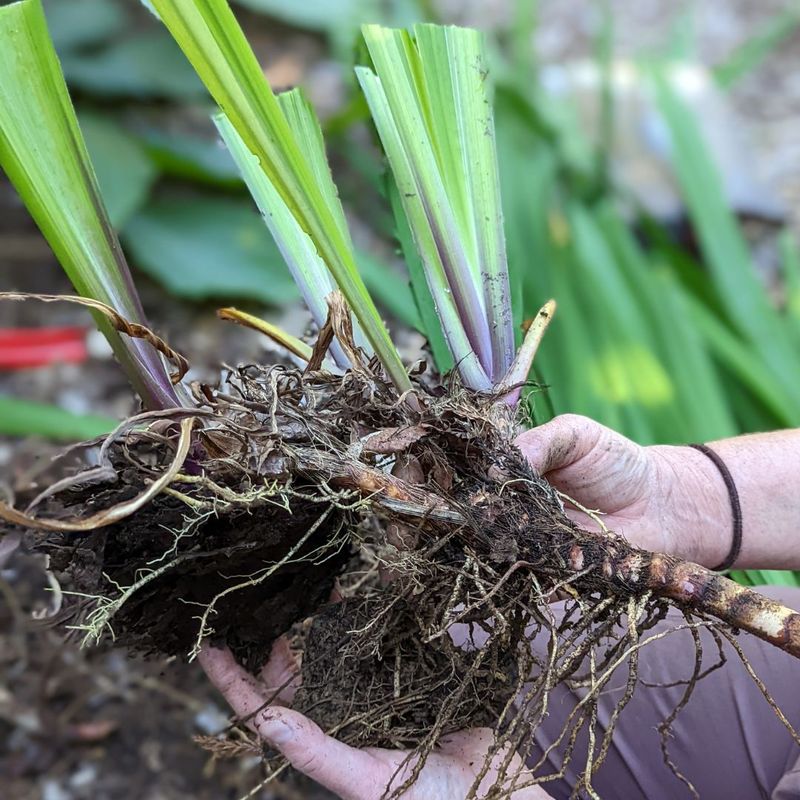
Many perennials benefit from division every few years, and fall is perfect timing in Michigan. Look for plants with dead centers or reduced flowering – classic signs they need splitting.
Carefully dig up the entire plant, divide the root ball with a sharp spade, and replant the sections. Water thoroughly after replanting. This simple task rejuvenates plants like hostas, daylilies, and black-eyed Susans while giving you free plants for other garden spots.
4. Protect Tender Roses
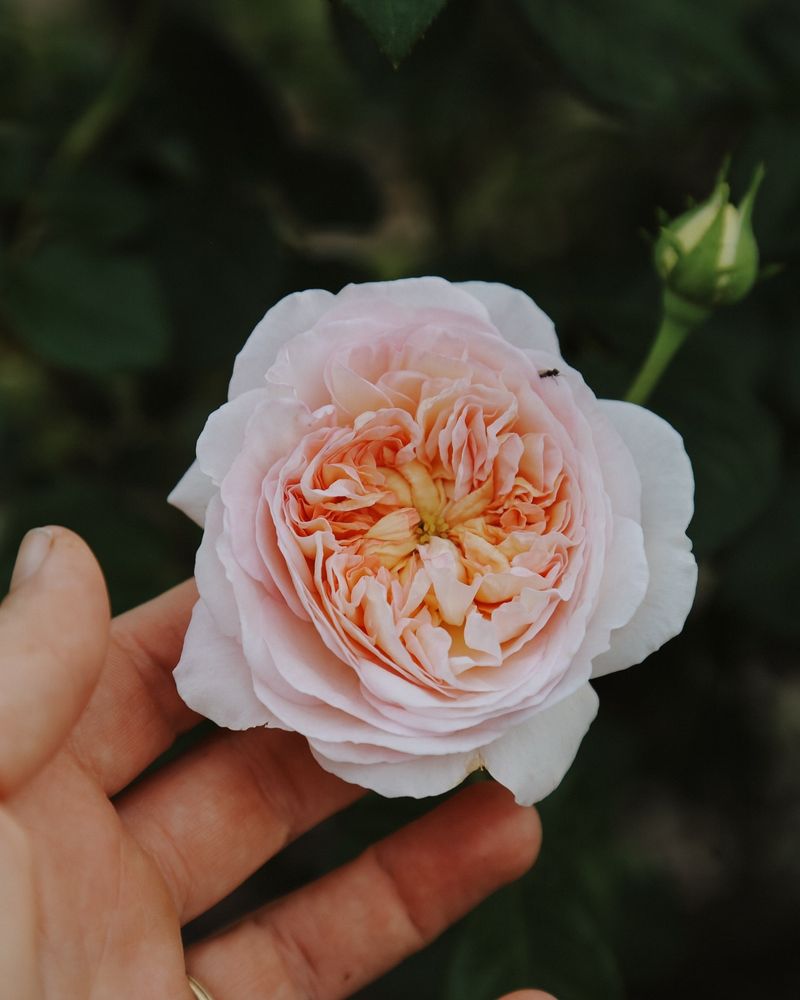
Michigan winters can be brutal on roses, especially hybrid teas and floribundas. Wait until after the first hard frost to prepare them for winter slumber.
Cut back canes to about 12 inches tall, then create a mound of soil or compost around the base. Once the ground freezes, add a layer of mulch, straw, or leaves for insulation. Rose cones work well too, but remember to ventilate on sunny days to prevent moisture buildup.
5. Winterize Your Irrigation System
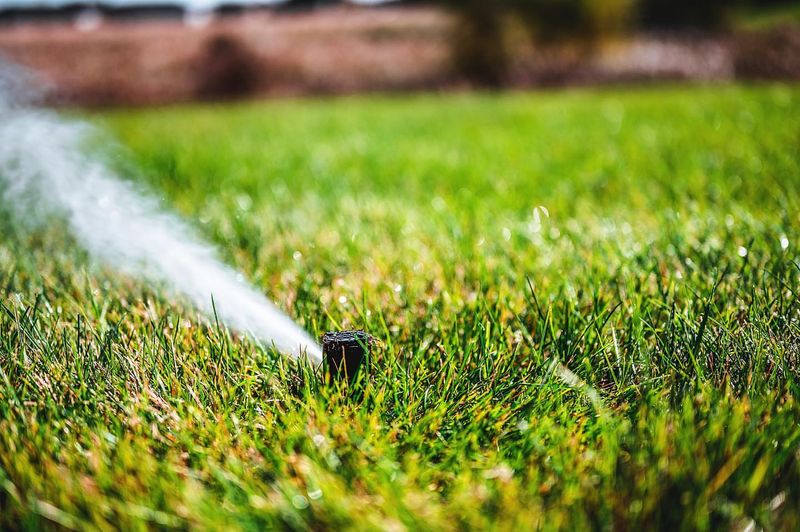
Frozen water in pipes spells disaster. Michigan’s freezing temperatures demand complete irrigation system drainage before winter arrives.
Shut off the water supply, then use an air compressor to blow out all water from the lines. Don’t forget to drain and store hoses, sprinklers, and watering cans in a frost-free location. Winterizing your system now prevents costly repairs in spring and extends the life of your equipment.
6. Test And Amend Soil
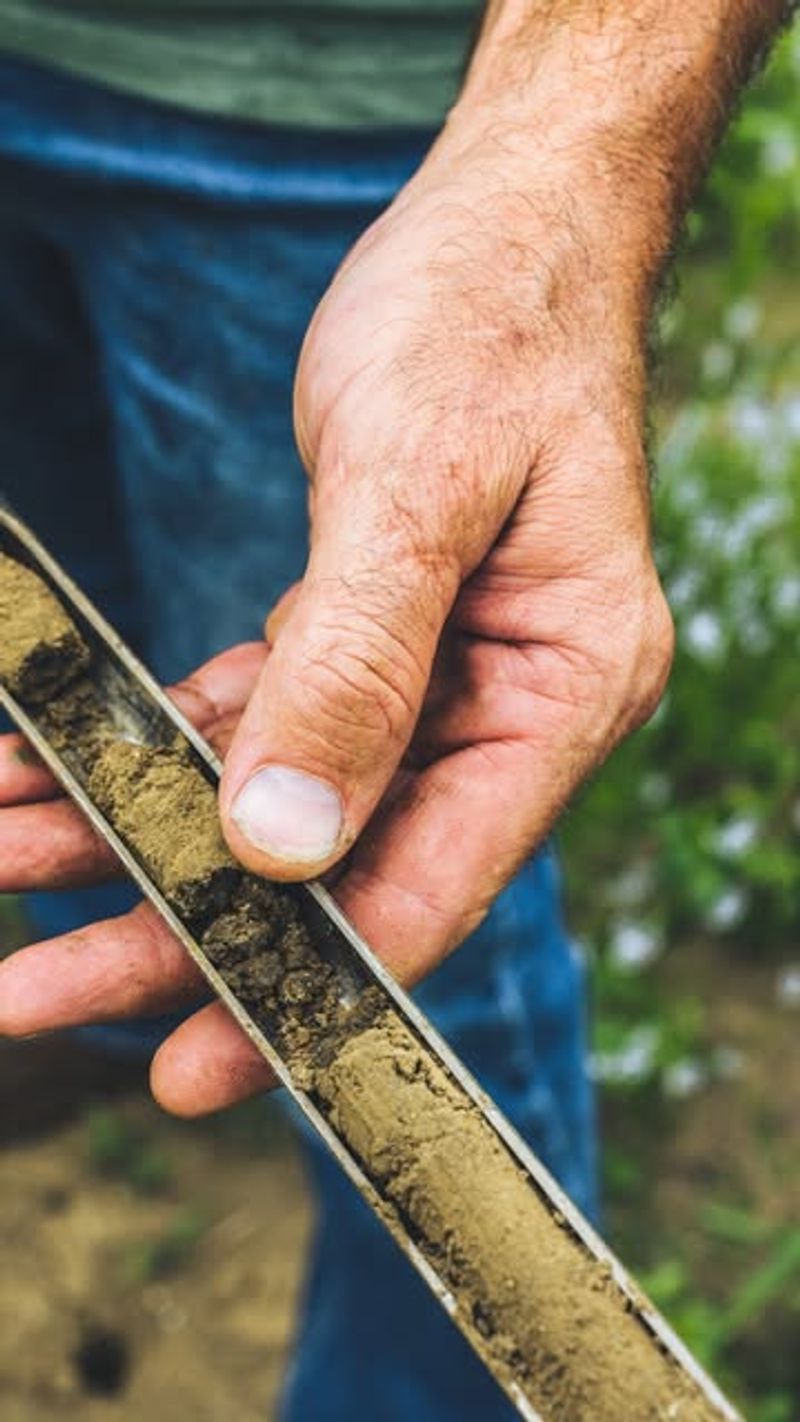
Fall presents the perfect opportunity to improve your garden’s foundation. Michigan soils vary widely, so testing reveals exactly what your garden needs.
Collect soil samples from different areas and send them to MSU Extension for analysis. Fall amendments like lime (for acidity) have time to integrate before spring planting. Adding compost now allows it to break down gradually, creating nutrient-rich soil that will power next year’s garden growth.
7. Mulch Perennial Beds
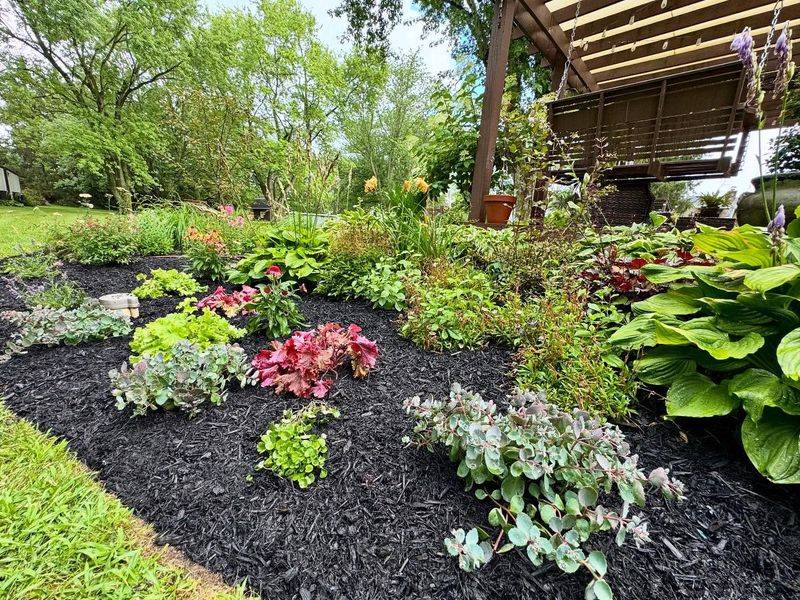
Michigan’s freeze-thaw cycles can heave plants right out of the ground! A good layer of mulch acts like a blanket, moderating soil temperature and preventing this damaging cycle.
Wait until the ground freezes, then apply 2-3 inches of mulch around perennials. Shredded leaves, pine needles, or straw work wonderfully. Avoid piling mulch directly against plant stems or tree trunks, as this can cause rot and create cozy homes for rodents.
8. Plant Trees And Shrubs
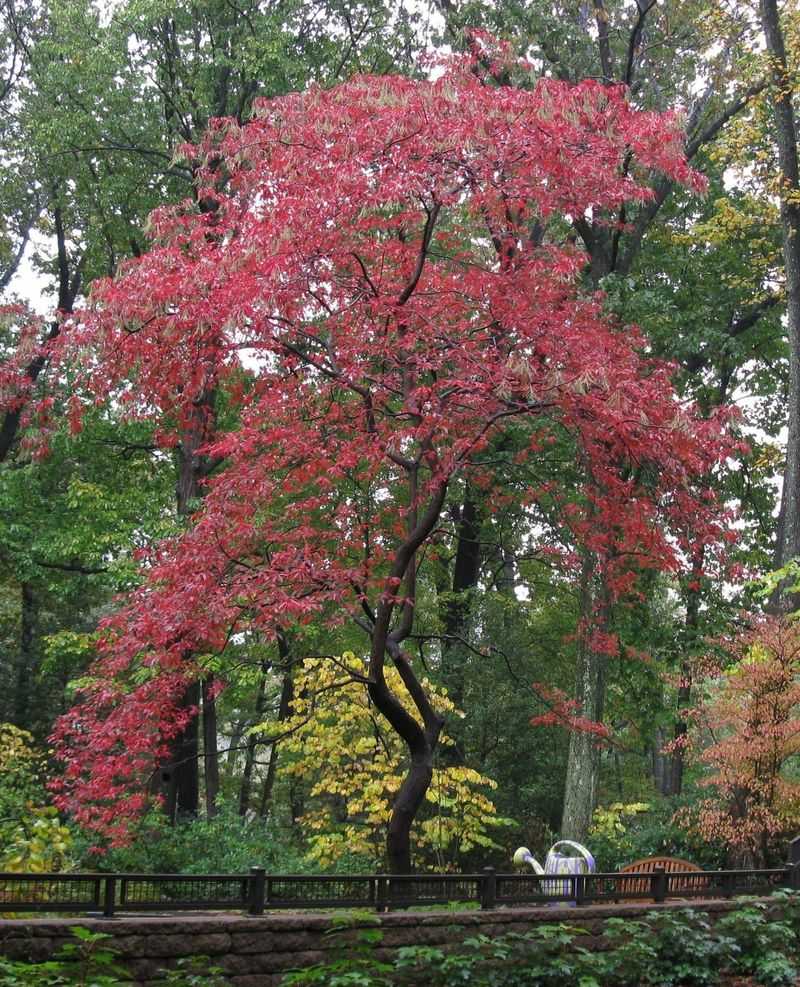
Contrary to popular belief, fall is actually the best time to plant woody plants in Michigan. Cooler temperatures reduce transplant shock while soil remains warm enough for root establishment.
Select native species when possible, as they’re adapted to local conditions. Dig holes twice as wide as the root ball but no deeper. Water thoroughly after planting and continue until the ground freezes. Your new trees and shrubs will develop strong roots over winter and leap into growth come spring.
9. Harvest And Store Garden Produce
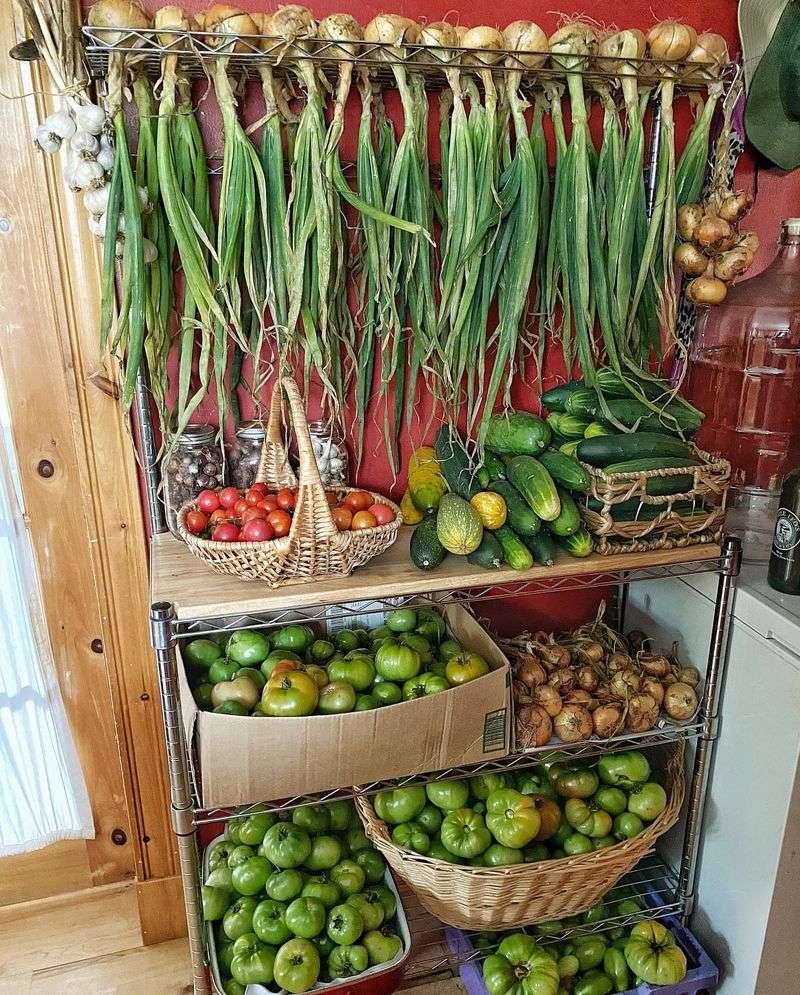
Michigan’s first frost signals the end for tender vegetables, but many crops actually improve with a light frost! Kale, Brussels sprouts, and carrots develop sweeter flavors after chilly nights.
Harvest winter squash once rinds harden completely. Cure them in a warm spot for 10 days before storing in a cool, dry place. Root vegetables like carrots can remain in the ground with a thick mulch layer, providing fresh harvests well into winter. Nothing beats the satisfaction of enjoying homegrown produce during snowy months!
10. Prepare Lawn For Winter
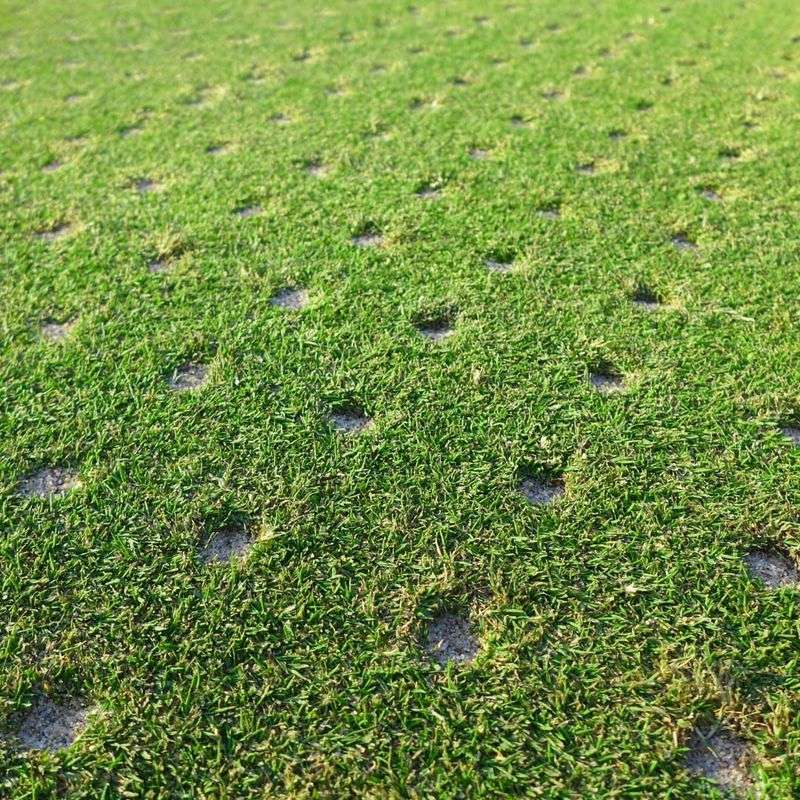
Fall lawn care pays huge dividends in spring. Michigan lawns benefit tremendously from one final short mowing and a good fall fertilization.
Set your mower blade to about 2 inches for the final cut to prevent snow mold. Apply a winterizing fertilizer high in potassium to strengthen grass roots against cold. Core aeration helps reduce compaction and allows nutrients to reach deeper. These simple steps mean your lawn will green up faster and thicker when spring arrives.
11. Clean And Sharpen Garden Tools
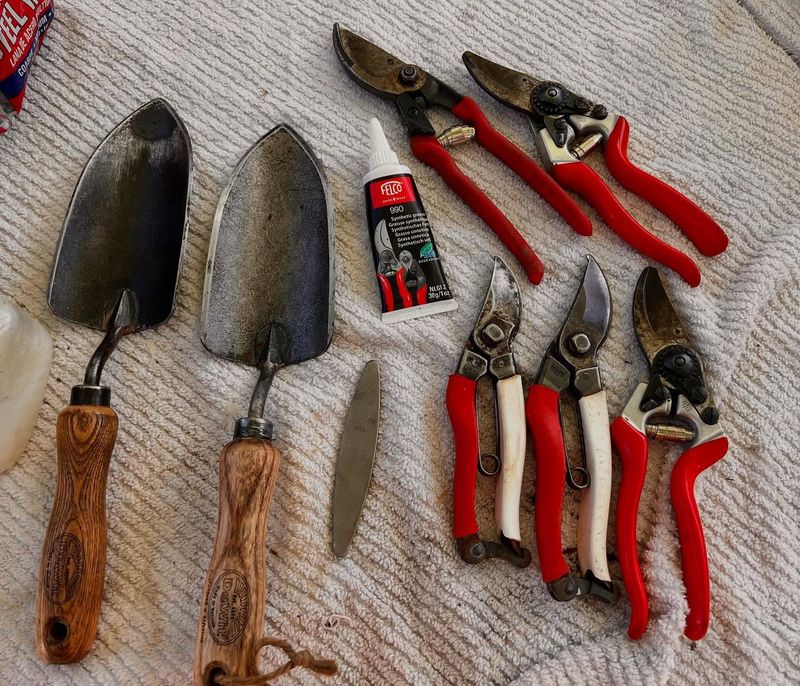
Your trusty tools deserve some TLC after a season of hard work. Clean, sharp tools make spring gardening easier and prevent disease spread between plants.
Remove caked-on soil with a wire brush, then wash with soapy water. Dry thoroughly to prevent rust. Sharpen blades of pruners, shovels, and hoes, then apply a light coating of oil. Wooden handles benefit from a light sanding and linseed oil application. Store everything in a dry place, ready for next season’s adventures.
12. Protect Young Trees From Wildlife
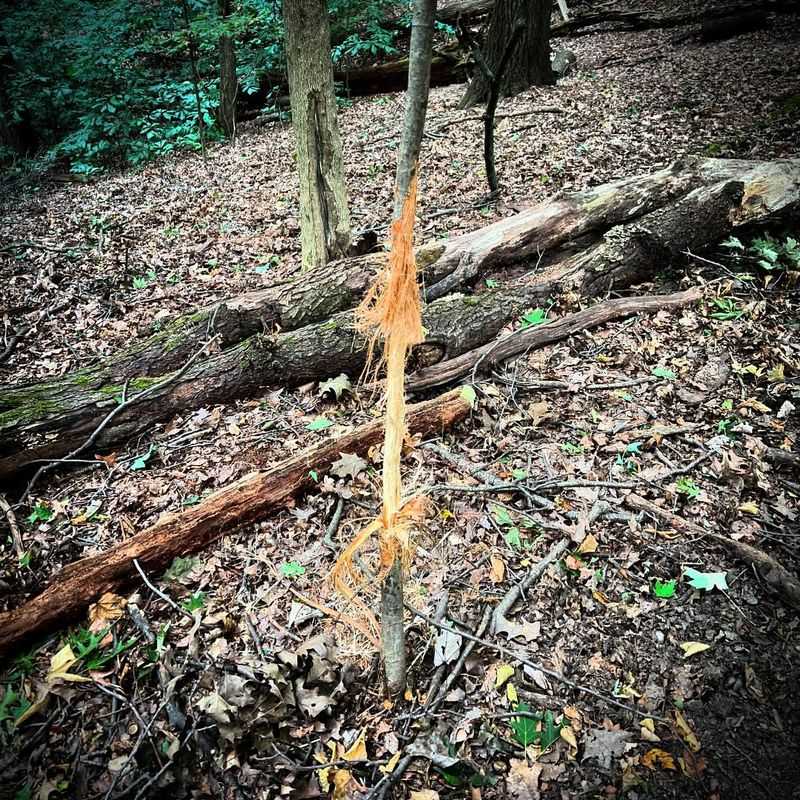
Hungry Michigan wildlife can wreak havoc on young trees during winter months. Deer rub their antlers on trunks while rabbits and voles chew bark when food becomes scarce.
Install tree guards around trunks, extending from ground level to at least 24 inches high for rabbit protection. For deer protection, go higher or use repellent sprays. Hardware cloth cylinders work well against voles and mice. Remember to remove these protections in spring to prevent trunk damage as trees grow.
13. Prepare Water Features For Winter
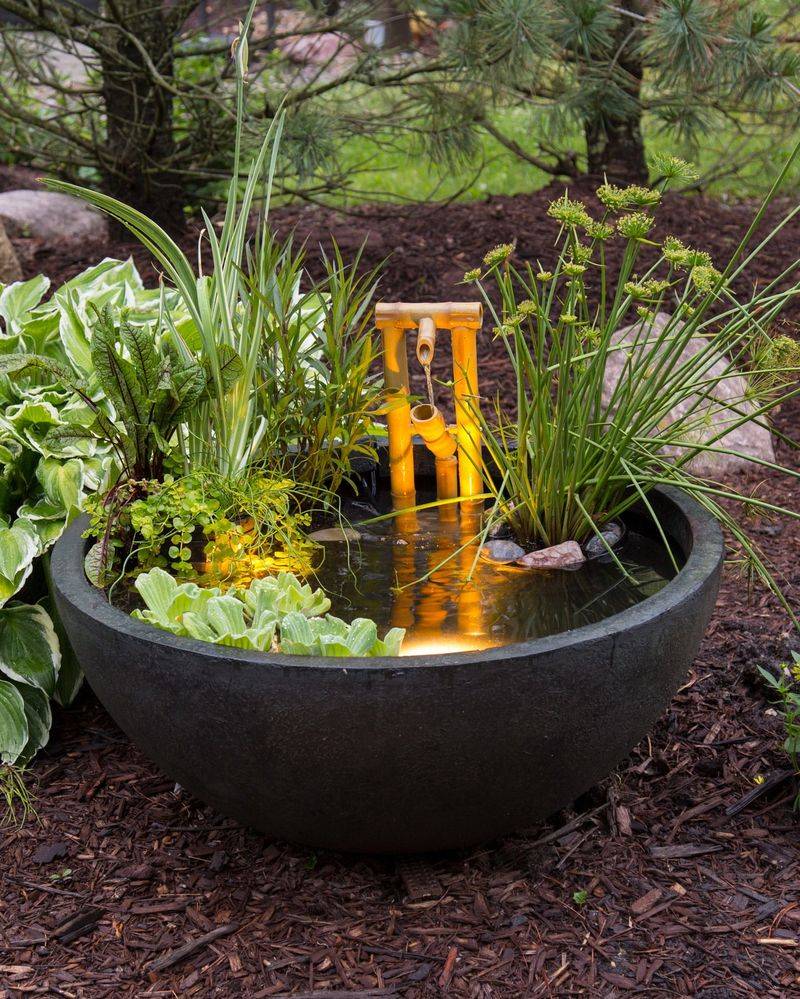
Michigan’s freezing temperatures can crack fountains, ponds, and birdbaths if left full of water. Different water features require different winterization approaches.
For small fountains and birdbaths, drain completely, clean, and store indoors if possible. For ponds with fish, remove debris, add a de-icer, and consider a bubbler to maintain an oxygen hole in the ice. Disconnect and drain pumps, storing them in frost-free locations to prevent damage and extend their lifespan.
14. Empty And Clean Rain Barrels
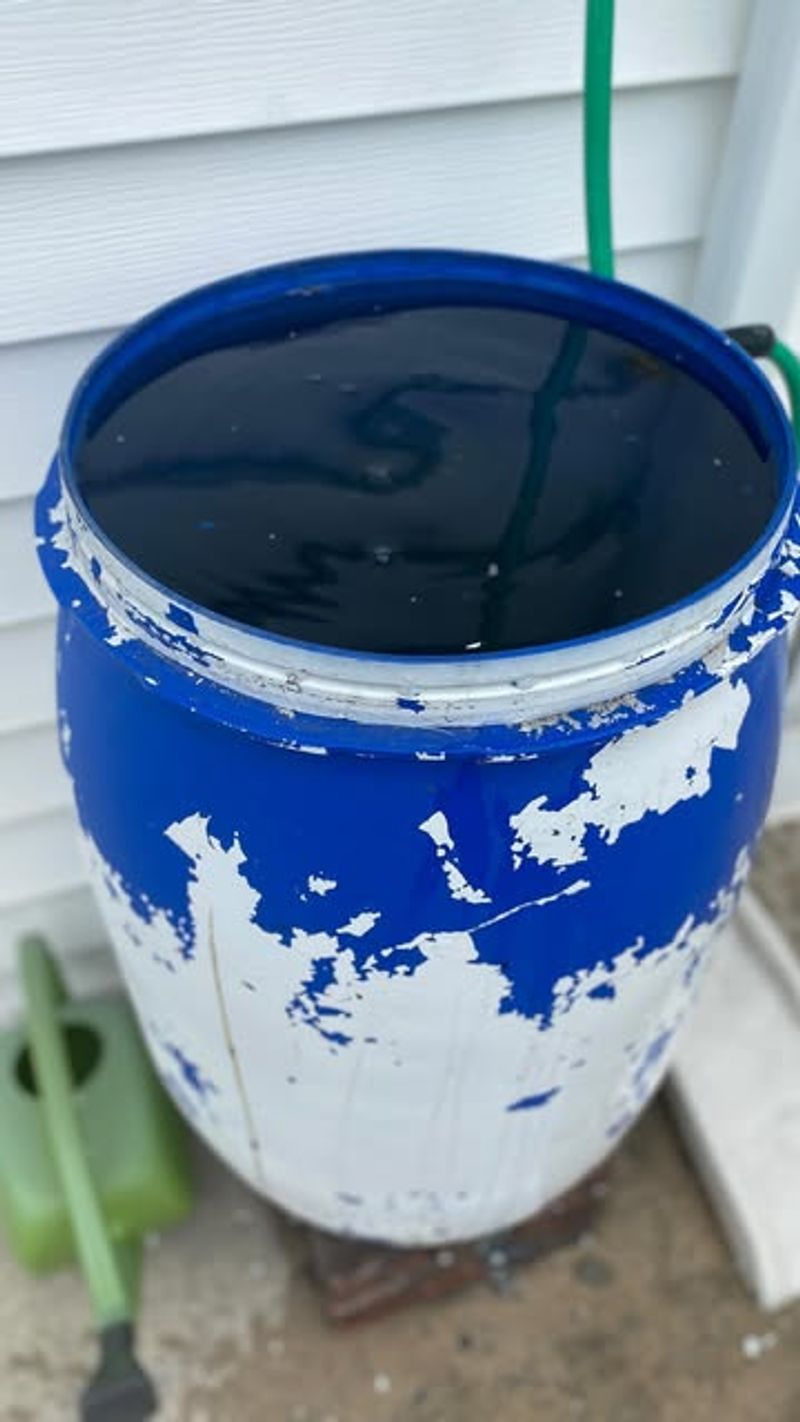
Michigan’s freezing temperatures will crack rain barrels left full over winter. Properly preparing these water-saving devices now ensures they’ll be ready for spring showers.
Drain completely and rinse out any debris or algae that accumulated during summer. Store the barrel upside down or in a garage if possible. Disconnect and drain hoses, then redirect downspouts to winter drainage paths. Your rain barrel will be ready for reconnection when spring rains arrive.
15. Protect Sensitive Shrubs And Evergreens
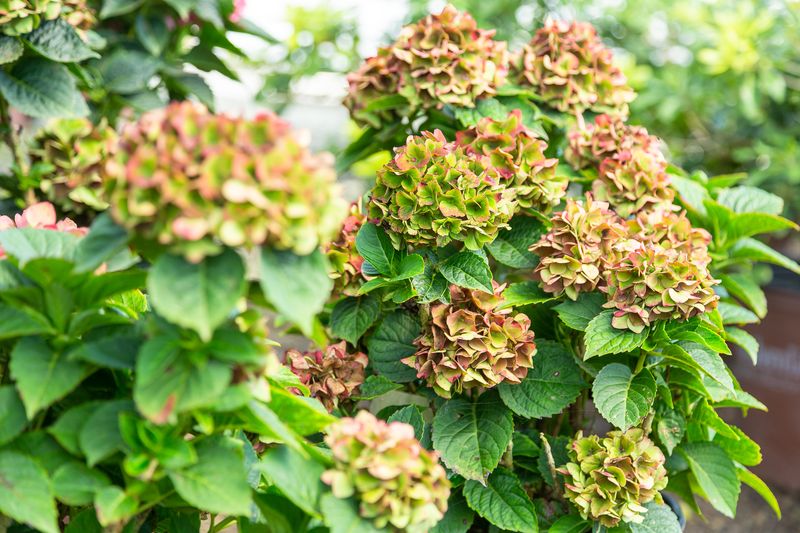
Michigan’s winter winds and heavy snow can damage prized shrubs, especially broadleaf evergreens like rhododendrons and boxwoods. These plants lose moisture through their leaves even in winter.
Create protective barriers using burlap screens on the windward side of vulnerable plants. Anti-desiccant sprays provide additional protection by sealing in moisture. For upright evergreens prone to splaying under snow load, gently tie branches together with soft twine. These simple precautions prevent costly replacements come spring.

